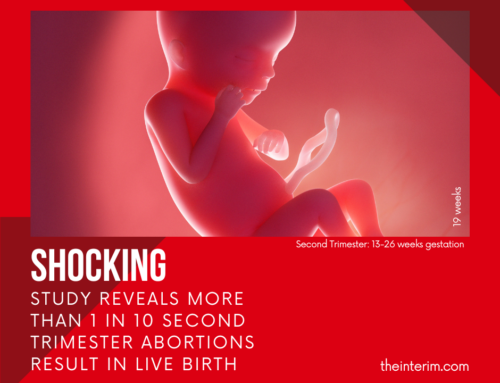Canadians have long lacked serious, in-depth studies of the pro-life movement. Until now, we have only seen books hostile to our principles (Not an Easy Choice by Kathleen McDonnell and The Big Evasion by Anne Collins) which have merely rehashed the pro-abortion party line. Catholics Against the Church by Michael W. Cuneo goes some way in restoring a balance.
Cuneo, a sociologist, is now an associate professor at Fordham University in New York. The research for this book was done as a basis for his doctoral dissertation at the University of Toronto. He notes that although his research was confined mostly to Toronto, interviews with some delegates to the annual Alliance for Life convention in Alberta in 1986 showed him that the kind of pro-life activism in Toronto is a microcosm of the larger movement, not merely a regional oddity.
The Canadian pro-life movement, he writes in his introduction, “is fraught with paradox. . . It is overwhelmingly Roman Catholic in composition and yet scorned by Canadian Catholic elites and scarcely tolerated by most bishops. Moreover, despite its quintessential Catholicity, many movement activists regard the institutional Canadian church with unconcealed contempt.” He then sets out to show how such mutual hostility developed over 20 years.
The fledgling pro-life movement of the late 60s received the tacit support of the Catholic hierarchy in Canada because it did not rock the boat. The early leaders came mostly from academia and the professions: they put the emphasis on abortion as a civil-rights issue, keeping religion well out of it.
When Campaign Life emerged, with a “militant leadership,” everything changed. “Since the late 1970s,” Cuneo writes, “the movement has been informally excommunicated from the graces of the Canadian hierarchy, and the attitude of most prelates toward it has been one of studied avoidance.”
History
Campaign Life was formed in the late 70s in rejection of the compromise, soft-sell approach favoured by the earlier political organization, Coalition for the Protection of Human Life. In 1981, Campaign Life openly clashed with Cardinal Carter in Toronto, over his approval of the Charter, when it excluded the right to life of the unborn. [Although Cuneo does not mention it, the Canadian Conference of Bishops meanwhile refused to discuss the Charter because of the opposition of the Quebec bishops and issued a statement on the neutron bomb instead]. This conflict, writes Cuneo, “only confirmed the suspicion of Catholic militants that their bishops were laggards on the abortion issue…Accusations that the bishops and, by insinuation, most Canadian clergy and laity were indifferent to the plight of the unborn had become commonplace.”
This antipathy and indifference to the pro-life movement, however, is not merely a matter of Episcopal displeasure with a “militant” approach to the issue. Cuneo argues convincingly enough that the roots of hierarchical distaste are found in the politics of ecumenism. If an issue finds an “ecumenical consensus” among the leaders of other denominations, then the bishops will not find their wrists slapped for imposing “private” morality. Such issues must not be “distinctively” Catholic and they must conform to “progressive liberalism.” (see box)
Abortion is “too Catholic,” Cuneo concludes. “The bishops no more enjoy being cast as cultural cretins than anyone else, which in the present historical period is the likely consequence of aligning oneself with the anti-abortion movement.” Abortion will never become an important political issue for the Catholic bishops, Cuneo believes, unless the leaders of other denominations agree to put it on the public agenda.
Progressives
But it is not just the bureaucracy which shuns Catholics active in the pro-life movement. Cuneo interviewed Catholics both in and outside the movement and found a deep division among lay people. The abortion issue has become a dividing line between two distinctly different types of Catholics, what he describes as the Progressive or Social Justice Catholic and the Revivalist or Conservative Catholic. He writes:
“Progressives regard themselves as a Catholic avant-garde charged with the responsibility of advancing the process of modernization within the church that was ostensibly set in motion by the Second Vatican Council. Thus, they prefer a church that would have a democratized authority structure; that would give women access to the ordained ministry; that would accommodate a greater range of doctrinal, liturgical, and ethical pluralism; and, above all, that would be broadly ecumenical.
“Progressive Catholicism is as much a religious mentality – a way of thinking about church and world – as it is an organized movement for change. As the favoured religious orientation of Catholic intellectuals, it has emerged as the elite orthodoxy of Canadian Catholicism. Its symbols, language, and presuppositions have been adopted by many religious orders, academics, and chancery officials. To the extent that it has become institutionalized wisdom in the Catholic academy and the Catholic liberal media, Social Justice Catholicism in Canada has lost much of its radical tincture and has settled into a familiar domesticity. As is the case with any orthodoxy, adherence to it often involves little more than sending out the correct signals, learning the appropriate terminology, and displaying good intentions. Despite its rhetoric of radical political engagement – to which only a virtuoso minority are personally committed – it has largely become a view point that may be subscribed to without the forfeiture of middle-class comforts, career opportunities or social standing. Indeed, mastery of its conceptual framework and stylized discourse affords one a password of sorts into the ranks of Canadian Catholic professional life.”
Most (but not all) Social Justice Catholics still adhere to Church teaching that abortion is wrong, Cuneo asserts, but they maintain a “fashionable distance” from the pro-life movement for a variety of reasons. Cuneo argues that the movement, in Toronto at any rate, has become dominated by the Revivalist Catholics, “a style of Catholicism which is the antithesis of their own…All Social Justice Catholics are careful to maintain a hygienic distance from the pro-life movement, not just because they disagree with its social conservatism, but more profoundly because it too closely reminds them of an authority-bound, anti-worldly Catholicism which they find repellent and which they wish to exorcise from the Canadian church.”
The others
Revivalist Catholics, on the other hand, find a comfortable home (a refuge, perhaps) in the pro-life movement. These Catholics, says Cuneo, “… express anger toward the church hierarchy as well as contempt for the transformed face of Canadian Catholicism. Among their complaints are the Canadian church’s apparent relaxation of Catholic sexual norms, particularly in the area of contraceptive practice, its involvement in ecumenism, which they think has diluted Catholic ethical and theological principles, and its seeming shift from a theocentric to an anthropocentric doctrinal emphasis. Indeed, the anti-abortion protest of these Catholics is umbilically connected to a contracultural vision for Canadian Catholicism. They understand themselves to be a holy enclave destined to rescue the Canadian church from absorption in the melting pot of secularism. To their mind, mainstream Canadian Catholicism has lost its way and betrayed its past. Having sold its soul for cultural relevance, it would rather make peace with evil than stare it down. And worse, at least where abortion is concerned, it no longer even seems to know what evil is.”
Comments
As a leader active in the pro-life movement in Toronto for the last ten or so years, I think that Cuneo has summed up quite accurately both strands of Catholicism and how they relate to the pro-life issue. Yet it would be a mistake to conclude that an activist pro-life Catholic is necessarily a “Revivalist” (a most unfortunate choice of language) unconcerned with other issues of social justice, using the abortion issue to promote a hidden religious agenda. Even if most active pro-life Catholics do fit the “revivalist” stereotype in their perception of how abortion fits into the whole area of moral decay in our culture, it is a bit too polemical to assert that they are on a personal rescue mission to save the church in Canada.
The major difference between the Revivalist and the Social Justice Catholic, in my opinion, is that the one group believes in and tries to uphold Catholic teaching, while the other challenges and seeks to change the teaching. Cuneo (and, to be fair, many others) shows an unwarranted prejudice when describing those faithful to Church teaching as “revivalist,” “traditional,” “conservative” and so on. All these terms so frequently bandied about are subtle sneers, while the other labels (“progressive,” “liberal”) give those challenging orthodoxy a much more positive image.
Just why abortion should be an issue that divides rather than unites Catholics is not answered in this book. The right to life is, after all, the most basic of social justice issues. Indeed, some of the “progressive” Catholics interviewed expressed unease at their avoidance of the matter. A nun is quoted as saying, “Speaking for myself – and I know others in the same boat – I do sometimes feel guilty when I think about abortion, about our commitment to justice, and realize that these people, who are so different from us, seem to be the only people doing anything about it.”
Let us hope that these “progressives” read this book and think about the position expressed by one “revivalist” woman: “The anti-abortion position is the most radical Catholicism because it calls for a total conversion away from killing. That’s why I’m upset with Catholics who march for peace and justice but are too snobbish and embarrassed to fight against abortion. Abortion feeds off the mentality which condones militarism, racism and war. Justice begins in the womb. . . I’ve even tried to attend some social justice rallies against nuclear arms, but it’s too monstrous a contradiction to see some banners that read: `Pro-choicers for Peace.’ And I’m no reactionary. I despise capitalism. Abortion is the logical outcome of its principles of survival of the fittest and placing the individual over the family.”
Catholics Against the Church is a fascinating book. Ignore the title, which is inaccurate and insulting to pro-life Catholics. Ignore also the chapter which gives case studies of individual activists. Cuneo attempted to give an insight into what makes someone become an activist by describing personal experiences and backgrounds. Since he altered some facts in each testimony to protect anonymity, it does not seem an accurate way to discover the road to activism.
Overall, this book stands as a challenge to all Catholics. Ideological splits and queasiness over the radical-seeming style of activism really have no place in the pro-life movement. The goal is to save babies and their mothers and we should never lose sight of this goal.
Sabina McLuhan is a contributing editor to The Interim.




